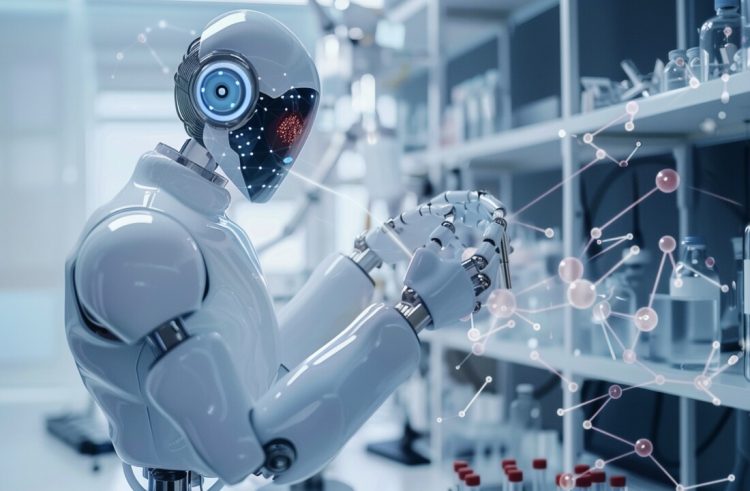Artificial Intelligence (AI) has evolved rapidly over the past decade, and its impact is being felt across nearly every sector of the global economy. From healthcare and finance to transportation and customer service, AI has the potential to significantly enhance efficiency, productivity, and decision-making. However, as with any transformative technology, AI also presents several risks and challenges, particularly in terms of ethics, privacy, and security. With AI becoming an integral part of society, governments worldwide face the pressing question of how to balance innovation with regulation to ensure that AI’s benefits are maximized while minimizing potential harm.
In this article, we will explore the perspectives of policy experts on how governments can strike the right balance between fostering AI innovation and implementing regulations that ensure safety, accountability, and fairness. This analysis will include the ethical implications of AI, the role of government in AI regulation, and the best practices for creating a regulatory framework that encourages growth while safeguarding public interests.
The Importance of AI Regulation
As AI technology continues to evolve, governments around the world must determine the role they should play in regulating its development and deployment. While regulation is often viewed as a way to limit technological progress, experts agree that thoughtful and forward-thinking regulation is crucial for several reasons.
Ensuring Ethical Standards
One of the most pressing concerns with the rapid growth of AI is its ethical implications. AI systems are capable of making decisions that could directly affect individuals and society at large. For example, AI algorithms are increasingly being used in areas such as hiring, criminal justice, and healthcare. If these algorithms are biased, inaccurate, or opaque, they can cause significant harm, such as discrimination in hiring practices or unjust sentencing in criminal cases.
AI regulation can help ensure that ethical standards are upheld, particularly when it comes to transparency, fairness, and accountability. By enforcing clear guidelines for AI developers, governments can mitigate the risk of harmful biases, ensure data privacy, and maintain public trust in AI systems.
Protecting Public Safety and Security
AI systems have the potential to disrupt many industries, but they also pose risks to safety and security. Autonomous vehicles, drones, and AI-driven medical devices are just a few examples of AI applications that, if not properly regulated, could lead to accidents, malfunctions, or misuse. Cybersecurity is another critical concern, as AI is increasingly used to identify vulnerabilities and defend against cyberattacks. However, AI itself could also be weaponized or exploited by malicious actors if left unregulated.
Governments play a key role in setting standards for AI safety, including ensuring that AI systems undergo rigorous testing and are subject to regular audits. By establishing regulatory frameworks that prioritize safety, governments can help prevent AI-related accidents and minimize potential risks to public welfare.
Promoting Fair Competition
In a rapidly developing field like AI, it is essential to maintain fair competition among businesses. Without regulation, large corporations with the resources to develop cutting-edge AI technologies may dominate the market, leaving smaller companies and startups at a disadvantage. This could stifle innovation and limit the diversity of AI applications, ultimately hindering the growth of the industry as a whole.
Regulation can level the playing field by ensuring that AI companies of all sizes have access to necessary resources and can compete fairly. Governments can also create incentives for smaller companies to engage in ethical AI development by offering grants, tax breaks, or other support mechanisms.
Challenges in Regulating AI
While the benefits of regulating AI are clear, the process is far from simple. There are several challenges that governments face when trying to create effective AI regulations.
Rapid Pace of Technological Advancement
One of the main challenges in regulating AI is the fast pace at which the technology is evolving. AI is a highly dynamic field, with new developments and breakthroughs occurring on a regular basis. This makes it difficult for regulatory bodies to keep up with the latest trends and ensure that regulations remain relevant and effective.
Regulators often struggle to strike the right balance between being proactive and being overly cautious. Too much regulation can stifle innovation, while too little regulation can lead to harmful consequences. Governments must be able to adapt quickly to technological advancements, creating flexible regulatory frameworks that can evolve as the technology progresses.

Global Coordination and Jurisdictional Issues
AI is a global technology, and its development and deployment span across borders. However, different countries have varying legal systems, priorities, and approaches to AI regulation. For example, while the European Union has implemented strict regulations, such as the General Data Protection Regulation (GDPR), the United States has taken a more hands-off approach, focusing primarily on innovation and industry-driven standards.
This lack of coordination between nations can create significant challenges, particularly when AI technologies are being deployed globally. Governments must find ways to collaborate on international AI regulations to ensure that there are consistent standards and that companies operating in multiple countries comply with the same ethical and safety requirements.
Balancing Innovation and Regulation
Striking the right balance between encouraging AI innovation and implementing necessary regulations is perhaps the most difficult challenge. Overregulation could stifle technological growth and innovation, while under-regulation could lead to harmful consequences for society.
Governments must ensure that their regulations are flexible enough to allow for experimentation and innovation while still providing safeguards to prevent misuse. This can be particularly difficult in the case of AI research and development, where new ideas and technologies are often in their infancy and may not fit neatly into existing regulatory frameworks.
Best Approaches to AI Regulation
Despite the challenges, there are several approaches that governments can take to regulate AI in a way that supports innovation while ensuring safety and ethical standards.
1. Creating AI-Specific Regulatory Bodies
One potential solution is the establishment of dedicated AI regulatory bodies that can focus on overseeing AI development and deployment. These bodies could work with industry experts, policymakers, and stakeholders to create and enforce AI-specific regulations. By concentrating expertise and resources in a dedicated body, governments can ensure that regulations are both informed and effective.
2. Encouraging Industry Collaboration
Rather than imposing top-down regulations, governments could foster collaboration between industry players, researchers, and regulators to develop best practices and standards for AI. This collaborative approach can ensure that the regulations are practical, adaptable, and reflective of the latest technological advancements. Industry-led initiatives, such as the Partnership on AI, have already shown success in bringing together various stakeholders to discuss ethical concerns and develop guidelines for responsible AI.
3. Implementing Transparent and Inclusive Regulation
Transparency and inclusivity are key principles in AI regulation. Governments should ensure that regulatory processes are transparent, allowing for public input and stakeholder engagement. AI regulations should be developed with input from a diverse range of voices, including those from marginalized communities who may be disproportionately affected by AI systems. This inclusive approach will help ensure that AI regulations are fair, equitable, and comprehensive.
4. Adopting a Risk-Based Approach
AI regulation should be based on a risk-based framework that prioritizes the areas of greatest concern, such as autonomous vehicles, healthcare applications, and AI in law enforcement. This approach allows governments to focus their regulatory efforts on high-risk areas without stifling innovation in low-risk applications.
5. Implementing Ongoing Monitoring and Auditing
Given the rapid pace of technological change, AI regulations should include mechanisms for ongoing monitoring and auditing. Governments should work with independent third parties to regularly assess the performance of AI systems and ensure that they meet safety and ethical standards. Continuous monitoring will help identify potential risks before they become widespread problems.
Conclusion: Finding the Right Balance
As AI continues to advance, governments will play a crucial role in ensuring that the technology is developed and deployed in ways that benefit society while minimizing potential harm. Balancing innovation with regulation is a delicate task, but by fostering collaboration, creating flexible regulatory frameworks, and ensuring transparency, governments can help shape a future where AI is safe, ethical, and inclusive. By 2025, the right balance between innovation and regulation will not only support AI’s growth but will also help establish a framework for responsible development, ensuring that AI benefits everyone, not just a select few.











































